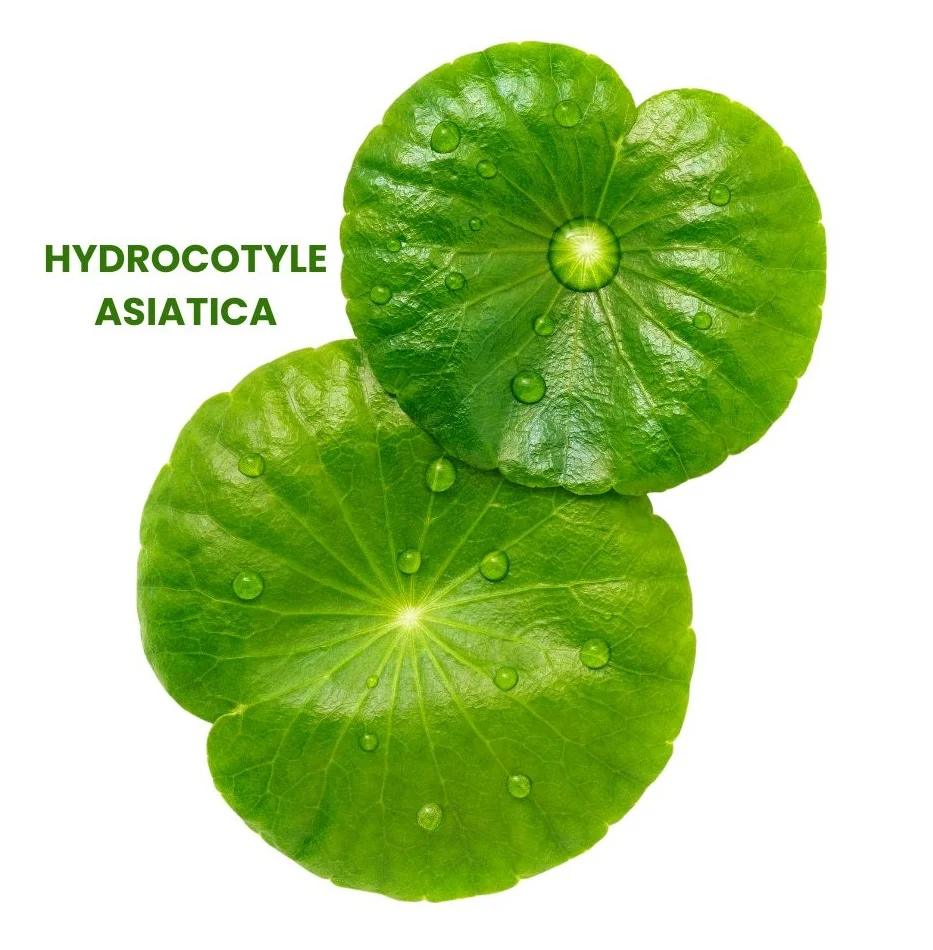Hydrocotyle asiatica, commonly known as Indian Pennywort or Thankuni, is a versatile medicinal herb renowned in traditional medicine systems like Ayurveda.
It belongs to the Umbelliferae (Apiaceae) family.
The plant is valued for its diverse therapeutic properties and is used to treat various conditions including skin diseases, leprosy, syphilis, and nervous debility.

Table of Contents
ToggleSOURCE INFORMATION
Common Names: Indian Pennywort, Kurivana, Valla-rai
Scientific Classification
- Kingdom: Plantae
- Clade: Angiosperms
- Clade: Eudicots
- Order: Apiales
- Family: Apiaceae
- Genus: Centella
- Species: C. asiatica
Origin and Historical Facts
- Hydrocotyle asiatica is native to the wetlands in Asia, particularly in India, Sri Lanka, and other parts of Southeast Asia.
- Historically, it has been used in Ayurveda and Traditional Chinese Medicine (TCM) for its health benefits.
- It is known as “Gotu Kola” in some regions and is praised for its potential to enhance cognitive function, wound healing, and overall vitality. Dr. Boilen is credited as the first prover of this remedy in homeopathy.
DRUG PATHOGENESIS
- Hydrocotyle asiatica contains active constituents such as triterpenoids, including asiaticoside and madecassoside, which contribute to its therapeutic effects.
- These compounds exhibit anti-inflammatory, antioxidant, and antimicrobial properties, making it beneficial in treating a variety of ailments.
KEY CHARACTERISTICS
- Diuretic: Promotes urine production.
- Aperient: Mild laxative effect.
- Tonic: Strengthens and invigorates the body.
- Nervine: Supports the nervous system.
DETAILED ORGAN SYMPTOMS
MIND
- Gloominess: Persistent feeling of sadness.
- Misanthropy: Desire for solitude and indifference towards social interactions.
- Loquacity: Excessive talkativeness.
- Weakness of Memory: Difficulty in remembering things.
HEAD
- Vertigo: Dizziness with a feeling of torpor (lethargy).
- Neuralgic Pain: Sharp pain in the external frontal nerve.
- Occiput Sensitivity: Acute sensitivity at the back of the head.
STOMACH
- Anorexia: Loss of appetite followed by a strong appetite.
- Aversion to Tobacco Smoking: Dislike for smoking tobacco.
RECTUM
- Burning and Itching: Uncomfortable sensations in the anus.
- Weight in Rectum: Sensation of heaviness.
URINARY ORGANS
- Frequent Urination: Increased desire to urinate.
- Brown Urine: Urine turns brown upon standing.
- Turbid Urine: Cloudy urine with sediment.
MALE SEXUAL SYSTEM
- Drawing Pain: Discomfort in the spermatic cords.
- Impotency: Reduced sexual desire and performance.
FEMALE SEXUAL ORGANS
- Leucorrhoea: White or yellowish vaginal discharge.
- Heaviness in Uterus: Feeling of weight in the uterus.
- Redness: Redness of the vulva, vagina, and cervix with severe labor-like pain.
RESPIRATORY ORGANS
- Dryness of Larynx: Dry throat.
- Weak Voice: Fatigue from talking.
- Difficult Expectoration: Hard to expel bronchial mucus.
- Shortness of Breath: Difficulty in breathing.
HEART AND PULSE
- Constriction: Feeling of tightness in the heart.
- Cardiac Spasm: Irregular beating of the heart.
- Strong Pulse: Full and regular pulse.
SKIN
- Circular Spots: Raised scaly edges on the skin.
- Miliary Eruptions: Small pimples on the neck, back, and chest.
- Thickening and Exfoliation: Thickened skin with scaling.
- Syphilitic Affections: Skin issues related to syphilis.
FEVER
- Shivering: Cold hands and feet in the afternoon, alleviated by rubbing.
MODALITIES
- Aggravation: Symptoms may worsen with inactivity and cold weather.
- Amelioration: Improvement with warmth, rubbing, and activity.
WHAT ARE MODALITIES IN HOMOEOPATHY?
RELATIONSHIP WITH OTHER DRUGS
- Complementary: Works well with other skin and nervous system remedies.
DOSE
- Mother Tincture: For general use and acute symptoms.
- 3x and 6x: For chronic conditions and specific symptomatology.
Frequently Asked Questions
What is Hydrocotyle asiatica used for?
- It is used for treating skin diseases, leprosy, syphilis, gonorrhoea, nervous debility, and gastrointestinal issues like dysentery and jaundice.
How does Hydrocotyle asiatica help in skin conditions?
- It helps by reducing inflammation, promoting healing, and providing antimicrobial effects.
Can Hydrocotyle asiatica be used for cognitive enhancement?
- Yes, it is traditionally believed to improve memory and cognitive function.
What are the side effects of Hydrocotyle asiatica?
- Generally, it is well-tolerated, but in rare cases, it may cause mild gastrointestinal disturbances or allergic reactions.
What is the recommended dosage for chronic conditions?
- For chronic conditions, potencies of 3x and 6x are recommended, depending on the severity and specific symptoms.
Glossary of Difficult Words
- Aperient: A mild laxative.
- Nervine: A substance that calms or strengthens the nervous system.
- Loquacity: Excessive talkativeness.
- Misanthropy: A dislike of humankind and avoidance of human society.
- Leucorrhoea: A white or yellowish vaginal discharge.
- Syphilitic: Relating to syphilis, a sexually transmitted infection.
This detailed drug picture provides a comprehensive overview of Hydrocotyle asiatica, its medicinal properties, and therapeutic applications.
If you have any further questions or need additional information, feel free to ask!
